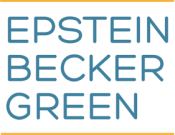On December 15, 2021, the Securities and Exchange Commission (SEC) issued proposed amendments to Rule 10b5-1, an SEC rule that provides an affirmative defense to insider trading liability in circumstances where trading was pursuant to a binding contract, an instruction to another person to execute the trade for the instructing persons account, or a written plan adopted when the trader was not aware of material nonpublic information (MNPI).
The rule, which was initially adopted in August 2000, led to the widespread use of so-called Rule 10b5-1 plans, which allow corporate insiders to trade pursuant to a predetermined plan. Indeed, according to one survey cited by the SEC, directors and executives at more than half of S&P 500 companies used Rule 10b5-1 trading arrangements in 2015. As academic studies and news articles have pointed out, however, the current Rule 10b5-1 allows room for gaming the system. It is these loopholes that the new proposed amendments to Rule 10b5-1 are largely intended to prevent.
The amendments make the following modifications to the rule:
-
Rule 10b5-1 trading arrangements entered into by directors and “officers” as defined by Exchange Act Rule 16a-1(f) (but not other corporate insiders) must include a 120-day cooling-off period before any trading can begin under the trading arrangement after its adoption, including adoption of a modified trading arrangement.
-
Rule 10b5-1 trading arrangements entered into by issuers must include a 30-day cooling-off period before any trading can commence under the trading arrangement after its adoption, including adoption of a modified trading arrangement.
-
Officers and directors must certify that they are not aware of MNPI about the issuer or the security when adopting a new or modified trading arrangement.
-
The affirmative defense under Rule 10b5-1(c)(1) — i.e., that trading pursuant to a Rule 10b5-1 plan is not “on the basis of ” MNPI — does not apply to multiple overlapping Rule 10b5-1 trading arrangements for open market trades in the same class of securities.
-
Rule 10b5-1 trading arrangements to execute a single trade are limited to one plan per 12-month period.
The proposed amendments would also require enhanced disclosure regarding Rule 10b5-1 trading arrangements, option grants, and issuer insider-trading policies and procedures, including:
-
A requirement that an issuer disclose in its annual reports whether or not the issuer has adopted insider trading policies and procedures. Issuers would be required to disclose their insider trading policies and procedures if they have adopted such policies and procedures.
-
A requirement that an issuer disclose in its annual reports its option grant policies and practices and provide disclosure showing grants made within 14 days of the release of MNPI and the market price of the underlying securities on the trading day before and after the release of such information.
-
A requirement that an issuer disclose in its quarterly reports the adoption and termination of Rule 10b5-1 trading arrangements and other trading arrangements by directors, officers, and the issuer, and the terms of such trading arrangements.
-
A requirement that Section 16 officers and directors disclose, by checking a box, on SEC Forms 4 and 5, whether the reported transaction was made pursuant to a Rule 10b5-1 trading arrangement.
The SEC’s proposed justification for the proposed amendments to Rule 10b5-1 include numerous studies suggesting that the 10b5-1 plans have been used by insiders to, in the words of one study, “game the system.”
By way of example, the SEC cites a 2009 study showing that insider sales made through Rule 10b5-1 plans systematically follow positive and precede negative firm performance, generating abnormal forward-looking returns larger than those earned by non-participating colleagues; a substantial proportion of randomly drawn plan initiations are associated with pending adverse news disclosures; and early sales plan terminations are associated with pending positive performance shifts. Another study cited by the SEC, from 2020, found that public companies disproportionately disclose positive news on days when corporate executives sell shares under predetermined Rule 10b5-1 plans, with such disclosures of good news on Rule 10b5-1 selling days being most prevalent in the healthcare sector and among midcap firms. This study further showed that stock prices reversed after high levels of Rule 10b5-1 selling on positive news days and that the price reversals were commensurate with the share volume of Rule 10b5-1 selling. Interestingly, the SEC relies almost entirely upon statistical-based evidence that the plans are being misused and cites little in the way of specific examples or enforcement activity in this area.
The proposed amendments should not be overly burdensome for issuers to implement. They will, however, impose some delay and regulatory burden on directors and officers looking to begin trading pursuant to a plan.




 />i
/>i


